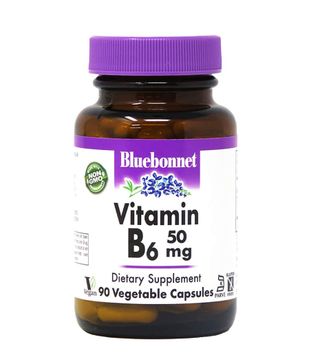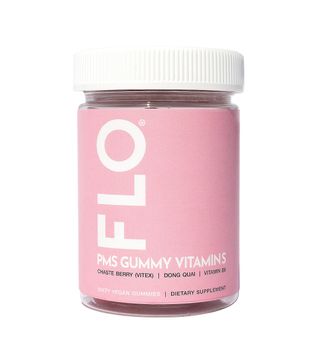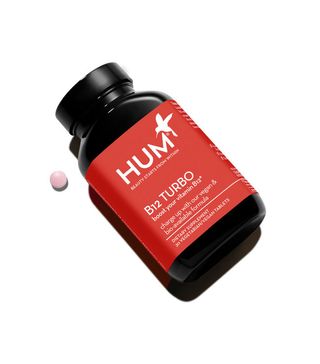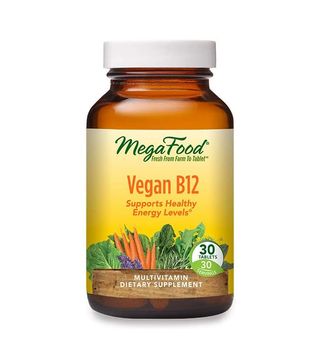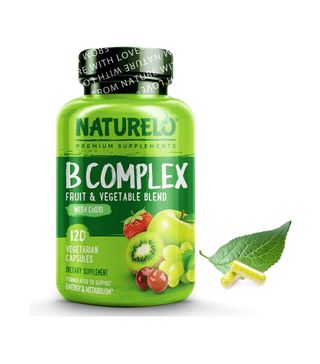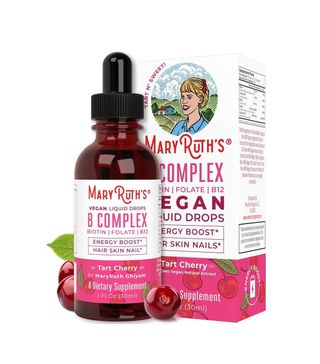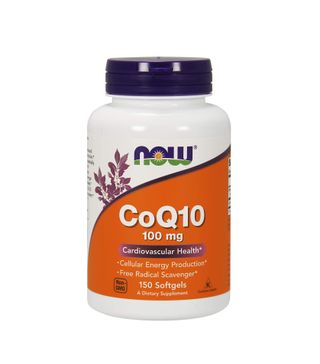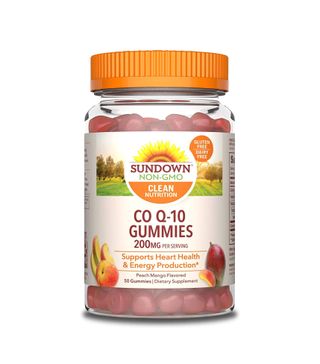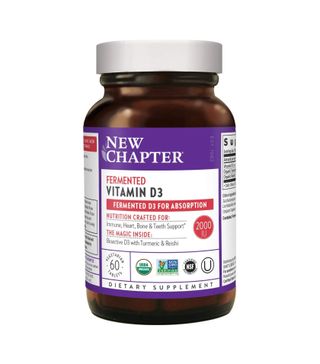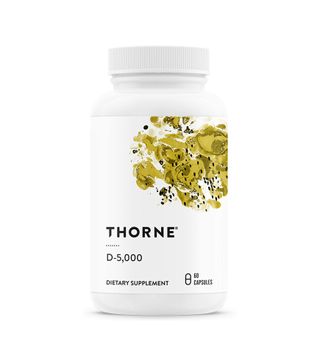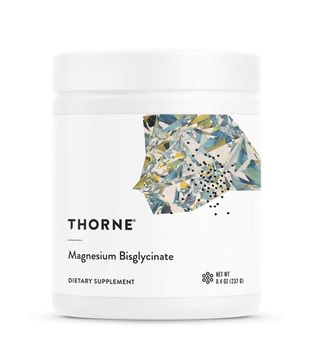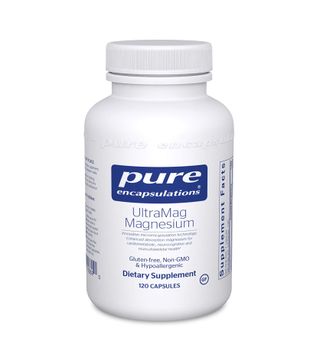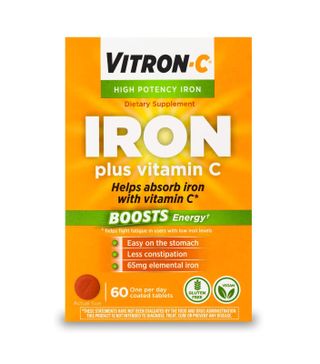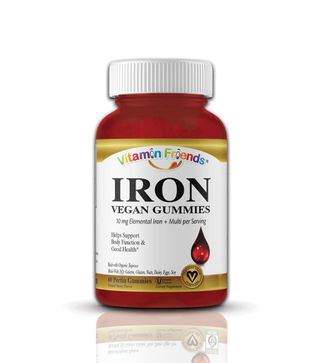The 7 Best Vitamins That Will Boost Your Metabolism

There are seemingly endless varieties of vitamins and supplements to choose from these days, like these adaptogens for energy or these liquid formulations. So it should come as no surprise that vitamins for metabolism are making waves in the wellness world.
But let's back up for a second. In order to understand how vitamins and minerals can potentially affect metabolism, it's important to digest just what vitamins are in the first place (bad pun intended). "Vitamins are used either as a precursor or as a facilitator of enzymatic processes for normal metabolic function," says Spencer Kroll, MD, PhD, FNLA, of the Kroll Medical Group in New Jersey. "Increasing your vitamin consumption may increase certain metabolic processes. Whether this increase in metabolism enhances normal cellular function is questionable."

Translation? There's little clinical evidence that vitamins and other vitamin-like substances can actually boost metabolism. But that doesn't mean your supplement habit is a lost cause if you're looking to safely rev your digestive engine. "The key to boosting your metabolism is eating a well-rounded diet overall, making sure to consume enough calories to provide the energy your body needs, and exercising regularly to burn excess calories," he says.
However, Kroll does note that many of his patients who are overweight are often deficient in certain key vitamins and minerals. By the same token, adding energy-boosting and fatigue-fighting supplements to your daily routine can help, theoretically, quicken a slow metabolism by boosting your potential for increased activity. What's crucial, though, is to work with your own physician on your vitamin levels and ensuing supplement regimen. "The supplements should be tailored by your doctor to the level of your deficiency, as overreplacement beyond the deficiency provides little or no increase in metabolism," Kroll adds. But let's be clear: There is no magic pill—maybe just fairy dust.
1. Vitamin B6
Vitamin B6 is one of the first vitamins to enter the metabolism-boosting conversation for its assistance in the production of energy- and mood-related neurotransmitters, says Kristin Gillespie, a registered dietician based in Virginia Beach. Similarly, Carielle Nikkel, MS, RD, CHC, VP of nutrition support at Persona, notes that vitamin B6 deficiency has been associated with impaired alertness, irritability, and even depression. While it's best to allow your doctor to diagnose anything specific, Nikkel adds that those who consume alcohol excessively as well as those on contraceptive medication may be at a greater risk for a vitamin B6 deficiency.
2. Vitamin B12
Then, there's B12, not to be left behind. It's another B derivative that gets a wellness gold star. "B12 is widely touted as an energy-boosting nutrient and plays a key role in converting food into energy," Kroll says. Deficiencies are often spotted in vegetarians and vegans, so if you skew herbivore, make sure to ask your doc to look at your B12 levels at your next visit.
3. Vitamin B Complex
If you don't have a medically identified vitamin B deficiency, Kroll recommends experimenting with a vitamin B complex supplement that contains the full gamut. "B vitamins—thiamine, riboflavin, niacin, pantothenic acid, vitamin B6, biotin, and folic acid—are all necessary for energy metabolism, including the digestion, breakdown, and storage of nutrients such as carbohydrates, proteins, and fats, which help the body turn nutrients into energy."
4. CoQ10
"Coenzyme Q10 is a vitamin-like substance that is found in nearly every cell within your body and is important in overall bodily function," says Gillespie. "It helps with energy by stimulating energy production in the mitochondria, basically helping the body more efficiently convert food to energy." What's more, our body naturally decreases the amount of CoQ10 as we age, according to Nikkel. Although certain stress and statin medications may also lower your natural CoQ10, a supplement can help get you to a healthier level, she adds.
5. Vitamin D
"There is an intricate relationship between vitamin D status and metabolism," explains Kroll. "Heavier people may need more vitamin D, which is a precursor to testosterone, a hormone those with sluggish metabolisms don't usually have enough of. Because supplementation of vitamin D may increase testosterone levels, it may lead to increased metabolism."
6. Magnesium
My personal favorite of the lot (I suppose that's an essay for another time), magnesium is a bit of a wunderkind. "Magnesium plays an essential role in the production and utilization of ATP, which is the principal molecule for storing, delivering, and transferring energy in cells," says Nikkel. She also notes that many Americans fall below the recommended intake for magnesium, so it's a worthwhile first stop if you decide to look into potential deficiencies.
7. Iron
This essential mineral is a key player in your overall energy level. "Iron is an essential component in the citric acid cycle and oxygen transport," says Nikkel. "Inefficiencies in either can impair energy and endurance. What's more, women are more likely than men to be deficient in it." If there's a severe deficiency, Kroll notes, it can cause anemia, which causes extreme fatigue. Nikkel recommends getting your iron levels checked regularly. (From my own anemia experience during a twin pregnancy, my hematologist recommended the above supplement that has vitamin C as well, which aids in iron absorption.)
Disclaimer
This article is provided for informational purposes only and is not intended to be used in the place of advice of your physician or other medical professionals. You should always consult with your doctor or healthcare provider first with any health-related questions.
-
 This Beauty Blogger's Wind-Down Routine Is Anything But a Snooze
This Beauty Blogger's Wind-Down Routine Is Anything But a SnoozeSee her go-to workout and her favorite vitamins.
By Virginia Yapp
-
 This Founder Shares Why We Should Start Celebrating Rest
This Founder Shares Why We Should Start Celebrating RestBurnout is nothing to be proud of.
By Kia Topps
-
 I Asked J.Lo's Trainer for His Very Best Fitness Tips
I Asked J.Lo's Trainer for His Very Best Fitness TipsGunnar Peterson has thoughts on how to get moving this season.
By Kia Topps
-
 This Style Influencer Turned Founder Shares Her Favorite Ways to Start the Day
This Style Influencer Turned Founder Shares Her Favorite Ways to Start the DayA morning routine from London.
By Candice Aman
-
 13 Products That Will Step Up Your Self-Care Game From Home
13 Products That Will Step Up Your Self-Care Game From HomeGet that glow from within.
By Natalie Gray Herder
-
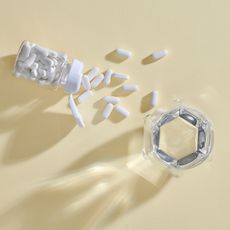 Don't Forget This Vital Ingredient When It Comes to Gut Health
Don't Forget This Vital Ingredient When It Comes to Gut HealthIt's crucial.
By Sarah Yang
-
 These 8 Foods Are the Worst for Rosacea—Here's What to Eat Instead
These 8 Foods Are the Worst for Rosacea—Here's What to Eat InsteadControl those flare-ups.
By Sarah Yang
-
 FYI: This Vitamin Affects Your Skin, Immune System, and Eye Health
FYI: This Vitamin Affects Your Skin, Immune System, and Eye HealthIt's a big deal.
By Sarah Yang
